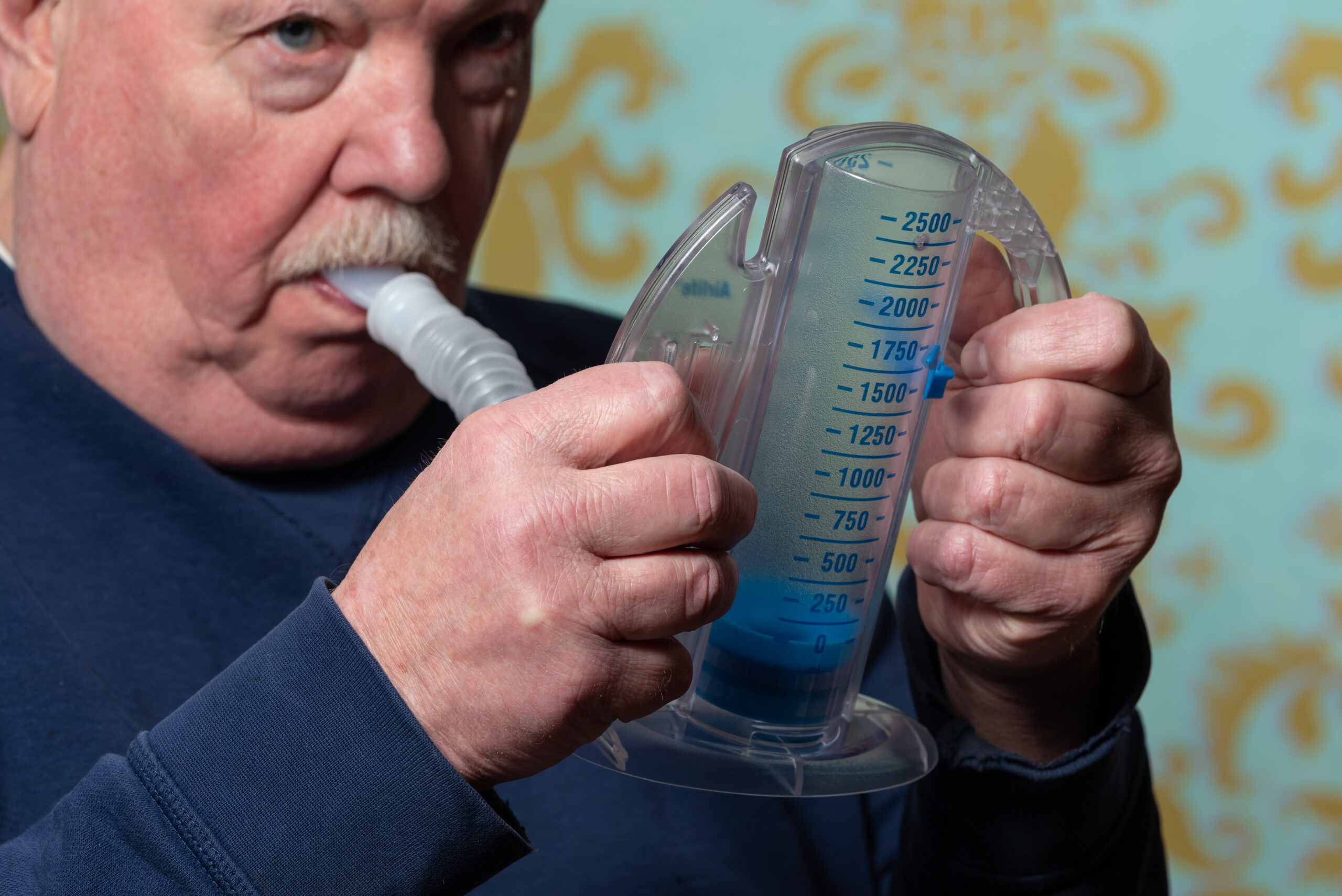What is depression?
Depression, also known as major depressive disorder or clinical depression, is a common and serious mental health condition that affects a person’s thoughts, feelings, and behaviors. It is characterized by persistent feelings of sadness, hopelessness, and a lack of interest or pleasure in activities once enjoyed. Depression can lead to a range of emotional and physical problems, making it difficult for those affected to function at work, school, or in their personal lives. Early identification and intervention can significantly improve the prognosis for those suffering from depression.
If you or someone you know is experiencing thoughts of self-harm, suicide, or is in immediate danger, please seek help right away. Contact a trusted friend, family member, or mental health professional, or call emergency services or your local crisis hotline.
In the United States, you can call the 988 Suicide & Crisis Lifeline (formerly the National Suicide Prevention Lifeline) by dialing 9-8-8 for confidential support 24/7. Remember, reaching out for help is a sign of strength, and there are people available to support and assist you during difficult times.
How exactly does depression occur?
Depression is a complex mental health condition, and its exact cause is not fully understood. However, researchers believe that it occurs due to a combination of factors that may include genetic, biological, environmental, and psychological components. Here’s an overview of these factors:
- Genetic factors: A family history of depression can increase a person’s risk of developing the condition. Researchers are still working to identify specific genes associated with depression, but it is believed that multiple genes interact with each other and with environmental factors to increase susceptibility.
- Biological factors: Neurotransmitters, such as serotonin, dopamine, and norepinephrine, are chemicals that help regulate mood, motivation, and other aspects of mental functioning. Imbalances in these neurotransmitters may contribute to the development of depression. Additionally, changes in the structure and function of certain brain regions implicated in mood regulation, such as the hippocampus, amygdala, and prefrontal cortex, may also play a role.
- Hormonal factors: Hormonal imbalances, particularly those involving stress hormones like cortisol, can contribute to depression. Conditions such as thyroid disorders, menopause, and pregnancy can also lead to hormonal changes that may trigger or exacerbate depression.
- Environmental factors: Chronic stress, trauma, or exposure to adverse experiences (such as abuse, neglect, or loss) can increase the risk of depression. These experiences can interact with genetic and biological factors to contribute to the development of the condition.
- Psychological factors: Personality traits, such as low self-esteem, pessimism, or a tendency to worry excessively, can make a person more vulnerable to depression. Additionally, difficulties in coping with stress or unresolved psychological conflicts can contribute to the onset or persistence of depressive symptoms.
It is important to note that depression can occur in different ways for different individuals, with some people experiencing a single episode in their lives, while others may have recurring episodes. The interplay of these factors can vary, making it difficult to pinpoint a single cause for any given case of depression.
What symptoms do patients experience with depression?
Depression is a mental health condition that manifests in a variety of emotional, cognitive, physical, and behavioral symptoms. While the specific symptoms experienced can vary from person to person, some common signs of depression may include:
- Persistent sad, anxious, or “empty” mood
- Loss of interest or pleasure in activities once enjoyed, including hobbies and sex
- Feelings of hopelessness, worthlessness, or excessive guilt
- Pessimism and negative thinking
- Irritability and agitation
- Fatigue or low energy
- Difficulty concentrating, remembering, or making decisions
- Insomnia (difficulty falling asleep or staying asleep) or hypersomnia (sleeping too much)
- Appetite or weight changes, either significant weight loss or gain without dieting
- Restlessness or slowed movement, observable by others
- Recurrent thoughts of death or suicide, or suicide attempts
- Aches, pains, headaches, or digestive problems without a clear physical cause and that do not improve with treatment
It’s important to note that not every individual with depression will experience all of these symptoms, and the severity and duration of symptoms can also vary widely. If you or someone you know is experiencing symptoms of depression, it’s essential to consult with a mental health professional for a proper evaluation and treatment plan.
How is depression diagnosed?
Diagnosing depression involves a comprehensive evaluation by a mental health professional, such as a psychologist, psychiatrist, or clinical social worker. There is no specific laboratory test or imaging study that can definitively diagnose depression. Instead, the diagnosis is based on the presence of characteristic symptoms, their duration, and the impact they have on the individual’s daily functioning. Here are the general steps in diagnosing depression:
- Clinical interview: The mental health professional will conduct a thorough clinical interview, asking questions about the person’s mood, thoughts, feelings, and behaviors. They will inquire about the duration, severity, and impact of these symptoms on the individual’s daily life.
- Medical history and physical examination: A detailed medical history, including information about any medications, substance use, and family history of mental health conditions, is collected. A physical examination may also be performed to rule out any underlying medical conditions that could be contributing to the depressive symptoms.
- Diagnostic criteria: The mental health professional will use the diagnostic criteria outlined in the Diagnostic and Statistical Manual of Mental Disorders (DSM-5) or the International Classification of Diseases (ICD) to determine if the individual meets the requirements for a diagnosis of major depressive disorder. These criteria include experiencing at least five depressive symptoms, with at least one being either a depressed mood or loss of interest or pleasure, for a period of at least two weeks.
- Ruling out other conditions: The clinician will also consider other mental health disorders that may present with similar symptoms, such as bipolar disorder, anxiety disorders, or adjustment disorders. Additionally, they will assess whether the symptoms are better explained by substance use, a medical condition, or normal grief due to a significant loss.
- Assessing severity and other features: Once the diagnosis of depression is established, the mental health professional will assess the severity of the condition (mild, moderate, or severe) and may also identify specific features, such as the presence of psychotic symptoms, melancholic features, or atypical features, which can help inform the most appropriate treatment approach.
It is essential for individuals experiencing symptoms of depression to seek professional help for an accurate diagnosis and appropriate treatment plan.
What is the treatment for depression?
Treatment for depression typically involves a combination of medication and psychotherapy, tailored to the individual’s needs and the severity of the condition. In some cases, additional treatments may be recommended. Here’s an overview of the common treatment options for depression:
- Medication: Antidepressant medications can help regulate mood by balancing the levels of neurotransmitters in the brain. The most commonly prescribed antidepressants are selective serotonin reuptake inhibitors (SSRIs), such as fluoxetine, sertraline, and escitalopram. Other classes of antidepressants include serotonin-norepinephrine reuptake inhibitors (SNRIs), tricyclic antidepressants (TCAs), and monoamine oxidase inhibitors (MAOIs). It may take several weeks for antidepressants to become fully effective, and finding the right medication or dosage may require trial and error.
- Psychotherapy: Talk therapy, also known as psychotherapy, can help individuals with depression understand and manage their symptoms, develop coping strategies, and improve their overall quality of life. Some common forms of psychotherapy for depression include cognitive-behavioral therapy (CBT), which focuses on identifying and challenging negative thought patterns, and interpersonal therapy (IPT), which addresses relationship issues and communication patterns that may contribute to depression.
- Electroconvulsive therapy (ECT): ECT is a procedure in which controlled electrical currents are passed through the brain to induce a brief seizure. It is typically reserved for severe cases of depression that have not responded to medication or therapy or when the individual is at high risk for suicide. ECT has been shown to be an effective treatment option, but it may cause short-term memory loss and other side effects.
- Transcranial magnetic stimulation (TMS): TMS is a non-invasive treatment that involves the use of magnetic fields to stimulate specific areas of the brain thought to be involved in mood regulation. It is generally considered for individuals with depression who have not responded to medication or therapy but do not meet the criteria for ECT.
- Lifestyle changes: In addition to medication and therapy, making certain lifestyle changes can also help improve depressive symptoms. These may include regular exercise, maintaining a healthy diet, getting enough sleep, reducing stress, and staying socially connected.
- Support groups: Peer support groups can provide an opportunity for individuals with depression to share their experiences, learn coping strategies, and receive encouragement from others who are facing similar challenges.
It’s essential for individuals with depression to work closely with their mental health providers to develop a comprehensive treatment plan tailored to their needs. Regular follow-up and monitoring are important to assess the effectiveness of the treatment and make any necessary adjustments.
What are the typical outcomes for depression treatment?
Outcomes for depression treatment can vary widely depending on factors such as the individual’s severity of depression, the presence of co-occurring disorders, and adherence to the treatment plan. However, many people with depression do experience significant improvement with appropriate treatment. Here are some typical outcomes for depression treatment:
- Symptom reduction: Treatment with antidepressant medications and/or psychotherapy can lead to a significant reduction in depressive symptoms for many individuals. It is not uncommon for people to experience a substantial improvement in mood, energy levels, sleep, appetite, and overall functioning.
- Remission: Remission refers to the period during which an individual no longer meets the criteria for a major depressive episode. With effective treatment, many people with depression can achieve remission, which can last for months or even years. However, some individuals may experience a relapse or recurrence of depressive symptoms at some point in their lives.
- Improved quality of life: Successful treatment can lead to an improved quality of life for individuals with depression, allowing them to better engage in daily activities, maintain relationships, and achieve personal goals.
- Reduced risk of suicide: Effective treatment for depression can reduce the risk of suicide by addressing the underlying symptoms and providing individuals with coping strategies and support.
- Ongoing maintenance: Some individuals with recurrent or chronic depression may require ongoing maintenance treatment, such as long-term medication or periodic psychotherapy sessions, to prevent relapse and maintain symptom control.
It is important to note that treatment outcomes can vary from person to person, and some individuals may require multiple treatment attempts or adjustments before finding an approach that works best for them. Early intervention, adherence to the treatment plan, and regular follow-up with mental health providers can significantly improve the prognosis and quality of life for those affected by depression.
What questions should I ask my doctor if I’m diagnosed with depression?
If you are diagnosed with depression, it’s important to ask your doctor questions that will help you better understand your condition and the available treatment options. This can enable you to make informed decisions about your care and play an active role in your recovery process. Here are some questions you may consider asking:
- Can you explain my diagnosis in more detail?
- What factors may have contributed to my depression?
- Are there any additional tests or assessments I should undergo to rule out other conditions?
- What are the different treatment options available for my depression?
- What are the benefits and potential side effects of the recommended medications?
- How long should I expect it to take before I see improvement with the prescribed treatment?
- What is the typical course of treatment, and how will we determine if it’s working?
- How will my progress be monitored during the treatment process?
- Can you recommend any psychotherapy or counseling options for my depression?
- Are there any lifestyle changes I can make to support my recovery process?
- What should I do if I experience a crisis or worsening of symptoms?
- How can I involve my family or loved ones in my treatment and recovery process?
- Are there any local support groups or resources you would recommend?
- How can I manage my depression alongside other medical conditions I may have?
- What is the likelihood of my depression recurring, and how can I reduce the risk of relapse?
Remember, it’s crucial to establish open communication with your healthcare provider and feel comfortable discussing your concerns, questions, or any challenges you may face during your treatment journey. Your doctor should be a supportive partner in your care and help guide you through the recovery process.
If you or someone you know is experiencing thoughts of self-harm, suicide, or is in immediate danger, please seek help right away. Contact a trusted friend, family member, or mental health professional, or call emergency services or your local crisis hotline.
In the United States, you can call the 988 Suicide & Crisis Lifeline (formerly the National Suicide Prevention Lifeline) by dialing 9-8-8 for confidential support 24/7. Remember, reaching out for help is a sign of strength, and there are people available to support and assist you during difficult times.




